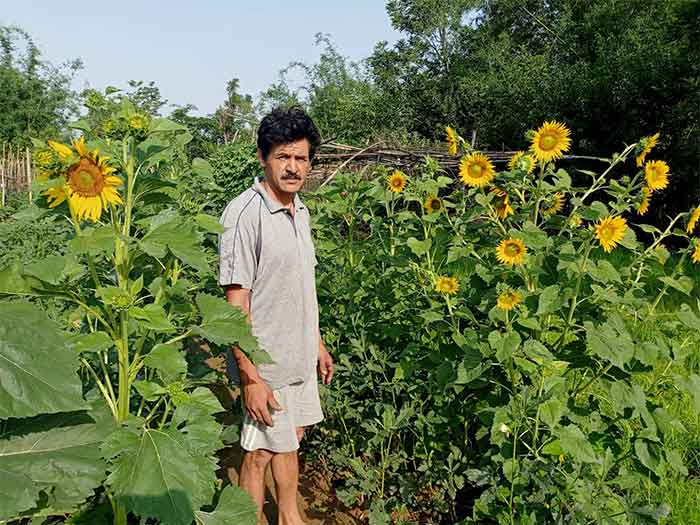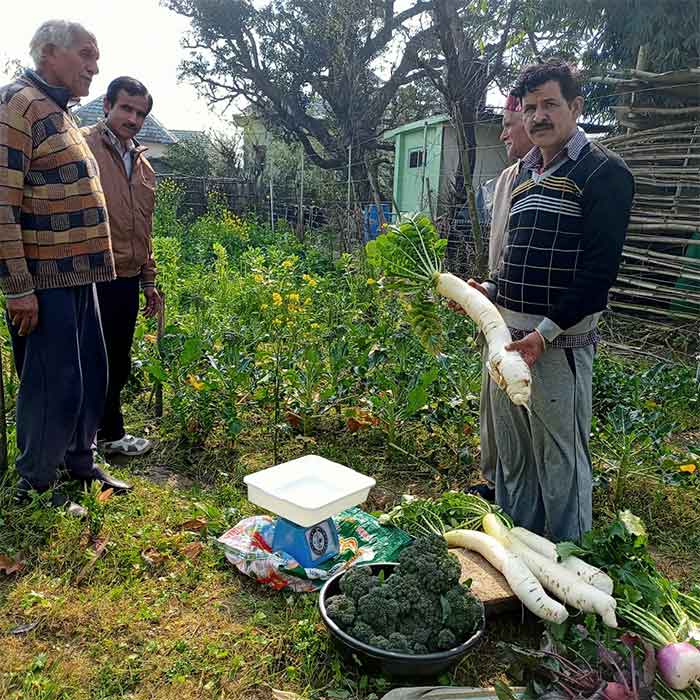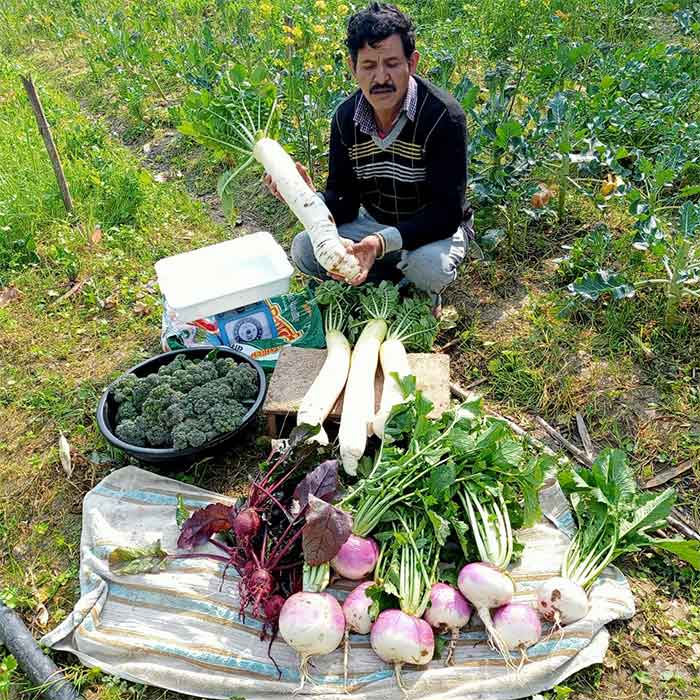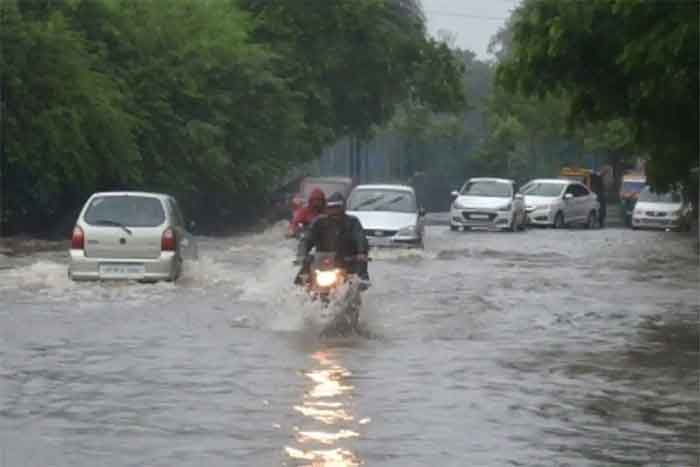
Shimla: When restrictions were imposed last year to contain the coronavirus, Ajay Rattan (38) faced the same troubles other farmers did. To begin with, fertilisers and pesticides were not available. As markets were shut, he did not know where to sell his produce. Having run out of options, Rattan, who is from Niun village in Bilaspur district of Himachal, used WhatsApp to reach buyers.
Rattan, who owns 25 bighas of farmland and had been earning a handsome income from selling his vegetables, said he had been entirely cut off from the market when the lockdown was imposed. Rattan was harvesting his vegetables and other crops when the first lockdown was imposed by the Indian Government on March 23, 2020.

No longer able to take his crops to the mandis and sell them to middlemen like he usually did, Rattan decided to directly reach the customers. He said he first contacted his regular customers like teachers and government officials whom he personally knew by phone and then started a WhatsApp group for people in and around his village to spread the word about vegetables grown on his farm. Rattan added around 500 people to his WhatsApp group and continued to approach customers over Facebook. He would post pictures of the produce he would be looking to sell in the group and its members would book to buy them if they were interested. Some would come directly to his farm to check out the vegetables. Soon he had to create another WhatsApp group after the first one reached its prescribed limit.
For Rattan, the cost of farming had come down too. As the cost of fertilisers and pesticides had risen, he decided not to apply any chemicals on his crops and only used fertilisers and medicines made from cow dung, urine and plants found locally. “My agricultural cost has reduced 10 times [because of this],” he said.
Earlier, Rattan would spend more than Rs 30,000 on pesticides and chemicals every year. This cost has now fallen to Rs 3,000. Earlier, he would earn just about Rs 45,000 in a year from farming, but now his income has risen to about Rs 5 lakh. He has also been given a certificate by the agriculture department that recognises his produce as being chemical-free, raising its value.

It was the lack of awareness about chemical-free farming methods that prevented him from exploring these options earlier but the shortages brought on by the lockdown pushed him in this direction. He also started raising awareness about the benefits of chemical-free, farmed goods among people returning from other states and took orders from them too. Because Rattan had now started growing grains along with vegetables, he contacted government employees and started providing rations to them. He also agreed to grow the next crop as per their needs.
 Deshraj Sharma, a deputy project director in the Himachal Pradesh department of agriculture who oversees the implementation of the Agricultural Technology Management Agency (ATMA) Scheme in Bilaspur, said Rattan had now been made a master trainer for natural farming by the department. Natural farming is the concept of sourcing all the nutrients needed for the crop from nature instead of using chemical inputs. Natural farming proposes the use of various homemade concoctions using cow dung and urine and locally available plants that will aid the growth and protection of the crops. This cuts farmers’ dependency on the market and reduces the cost of cultivation. Sharma said Rattan had also used Facebook to share his products with people. “This did not cause him any problem even when the markets were closed,” he said.
Deshraj Sharma, a deputy project director in the Himachal Pradesh department of agriculture who oversees the implementation of the Agricultural Technology Management Agency (ATMA) Scheme in Bilaspur, said Rattan had now been made a master trainer for natural farming by the department. Natural farming is the concept of sourcing all the nutrients needed for the crop from nature instead of using chemical inputs. Natural farming proposes the use of various homemade concoctions using cow dung and urine and locally available plants that will aid the growth and protection of the crops. This cuts farmers’ dependency on the market and reduces the cost of cultivation. Sharma said Rattan had also used Facebook to share his products with people. “This did not cause him any problem even when the markets were closed,” he said.
Rattan said when markets were open earlier, he used to grow only vegetables on most of his land, but he has now customised his cultivation according to the demands of his customers on social media. He started to grow wheat, maize, rice and turmeric after his customers placed advance orders with him.
The new model created is now being adopted by other farmers too. Sharma said nearly 100 farmers in Bilaspur had already adopted his method of multi-cropping that is ensuring a reduced risk of crop failure.
For now, Rattan is hoping to expand his clientele and rope in more people. In collaboration with the agriculture department, he has already started training more than 500 farmers in surrounding villages. “This is just the beginning,” he said.
Rohit Prashar is a Shimla-based freelance journalist and a member of 101Reporters.com, a pan-India network of grassroots reporters.













































